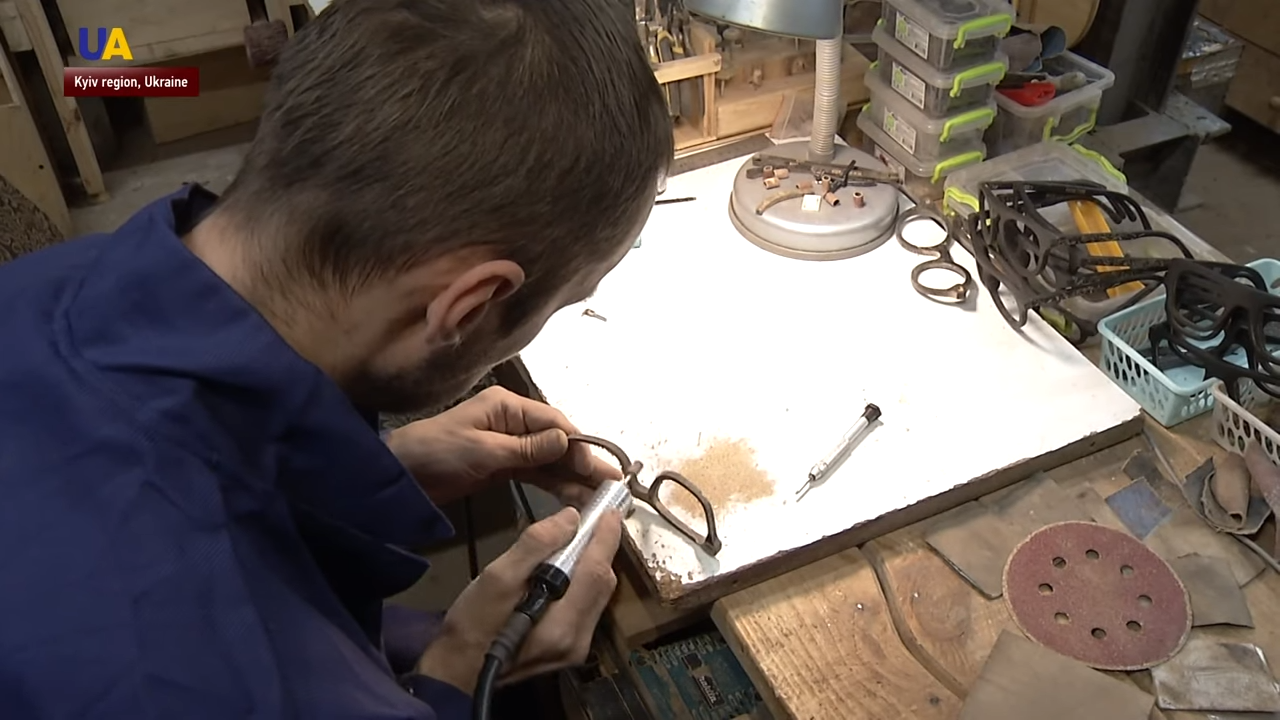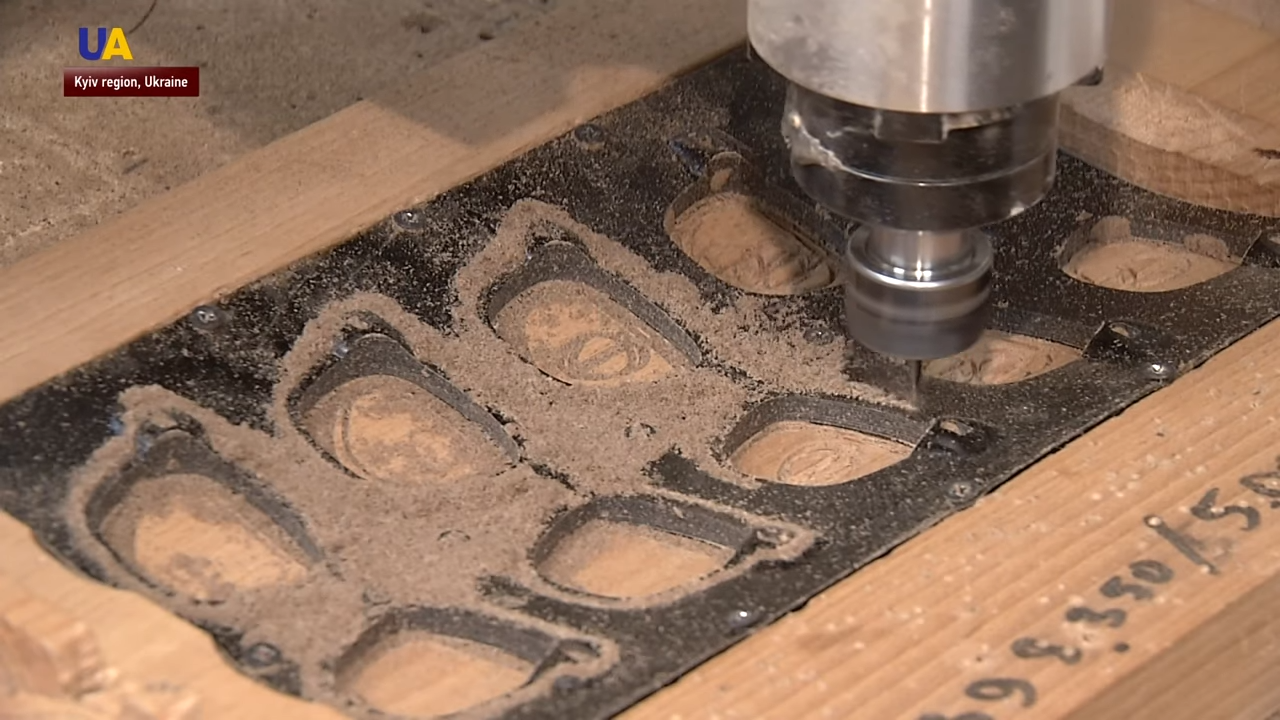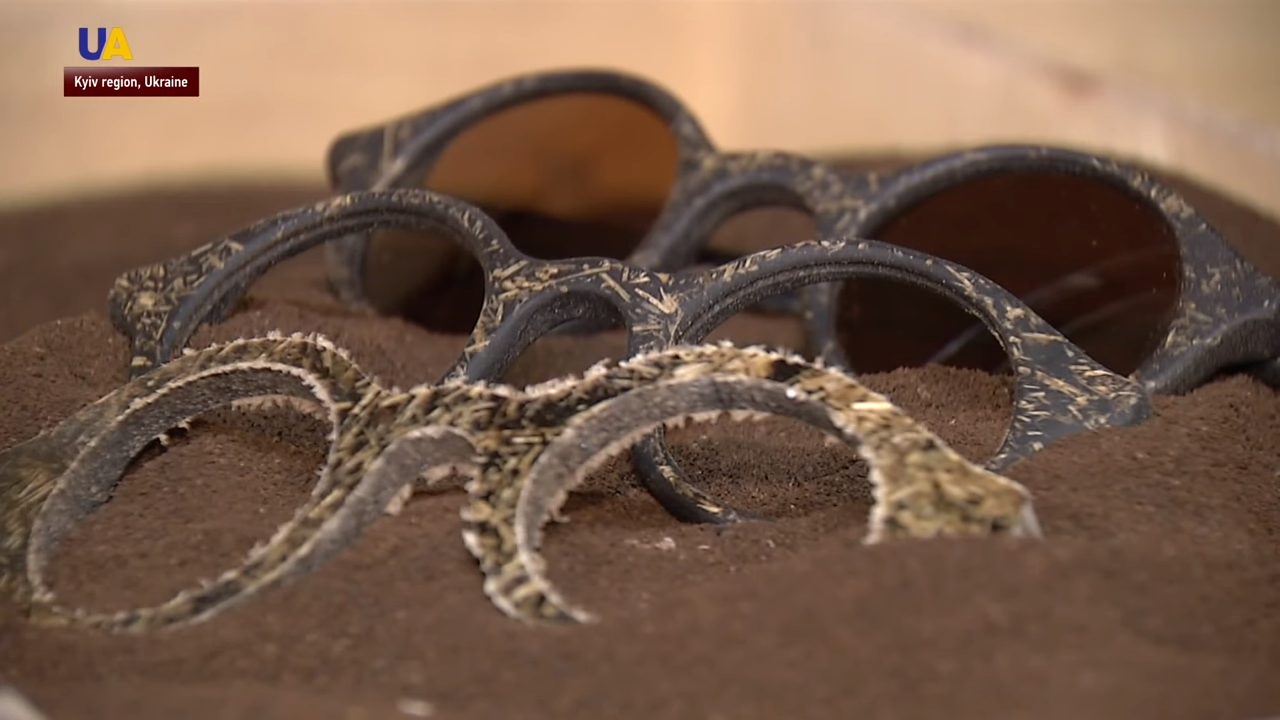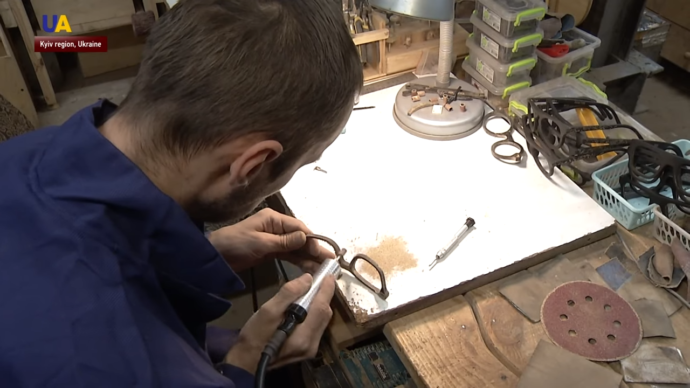From the idea of producing eco-friendly glasses until the finished product, it took Maksym Havrylenko one and a half years. Now, there are seven models and 34 variations of the glasses. It didn’t take Maksym long to realize that used coffee grounds are a perfect material for producing frames.
“They are dark, and classic glasses are black. They go well with anything, they are universal. Also, there is a lot of used coffee grounds, it’s a byproduct which simply goes to waste. And we can give it a second life,” Havrylenko said.

It takes seven days to prepare the material. And two more hours of manual work to get the frames ready for sale. On average, used coffee grounds from one cup of espresso — about 15 to 20 grams — are enough to make one pair of glasses.
“As of now, we don’t have the capacity to process all the used coffee grounds we are offered. Because there were requests. We received a call from Colombia, they said: ‘Guys, we have lots of grounds, we can sell them to you.’ There were also calls from London,” Maksym said.
Maksym makes both sunglasses and corrective glasses. The lenses are also made from an unusual material.
“These are probably the most eco-friendly existing lenses. They are made from recycled cotton,” he said.
In the middle of November, the project was presented on a crowdfunding platform. In 24 hours, it raised $10,000. The money will be used to modernize the production process. This will reduce the cost of the glasses by two and a half times.

“Our main goal for the spring is to replace and supplant cheap Chinese glasses which are sold for 500 to 600 hryvnias with ours — which are natural and organic. Which are made in Ukraine with natural materials,” Maksym said.
The coffee glasses contain no microplastic or crude oil. Coffee grounds are held together by a substance based on vegetable oil.
“If you put them in soil or water for a long time — around 10 years — they will start decomposing without any consequences for the environment,” he said.
80% of Maksym’s clients are foreign customers. Mostly, the glasses made from coffee are popular in Japan, Australia, the United States and western Europe.

“The reactions are different, very different. Sometimes, people ask ‘Why are you doing this?’ There are few of them, but they do exist. And you start explaining that there is a problem of plastic pollution and it’s our contribution to the development of this technology. Because it’s not about glasses, it’s about the material we make,” Maksym added.
Now, Maksym is negotiating with investors to build an enterprise. All the products will be manufactured in Ukraine. Aside from glasses, Maksym plans to make toothbrushes, plates, phone cases, and other products. The startup already has its first pre-orders — cups for Kyiv-based coffee shops.













